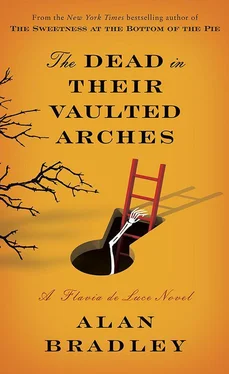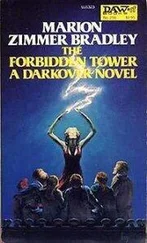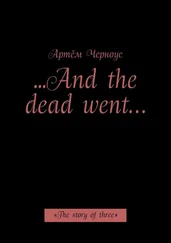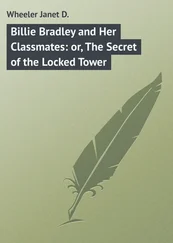Mr. Cruickshank said nothing.
“It seemed like a good idea,” I added lamely.
“The supplements in this shop are intended for human consumption only,” he snapped. “They are not approved for poultry. I could not possibly be responsible for unforeseen consequences—”
“Nor would I expect you to, Mr. Cruickshank,” I interrupted.
I always make it a point, when pleading, to speak aloud the name of the person being addressed. It makes things seem so much more—well, suckily subservient.
“No,” Mr. Cruickshank said.
“I beg your pardon?” I asked. I couldn’t believe my ears. I was not used to being cut dead at the first stroke of a duel.
“No,” he repeated. “No thiamine.”
“But—”
“And now if you’ll excuse us,” he said, nodding towards Miss Clay, who seemed to have been struck dumb by our exchange, “I expect you’ll be having more to attend to than—”
He left the word “chickens” unspoken.
So much for sympathy. Things had not gone at all as I expected.
As often happens when one’s brain locks up, I stood staring blindly at the floorboards until the low hum of conversation resumed.
Then I trudged heavy-footed to the door, defeated.
Outside, blinking in the sudden bright sunshine, I seized Gladys’s handlebars and turned towards home. Without the thiamine, there was little sense in carrying on.
I hadn’t gone more than a few yards when a voice, almost at my elbow, said, “Hist! Flavia.”
I nearly leaped out of my skin.
I whipped round and found myself face-to-face with a wizened little woman whose skin was the dappled white and brown of an Indian pony in the cinema westerns. She had appeared suddenly from a narrow passageway that ran alongside the chemists’ shop.
Annabella Cruickshank! It simply had to be.
“Here,” she said, squinting in the sunlight, taking my hand in her mottled fingers, and forcing my own fingers to close around a brown bottle. “Take this.”
“Oh, but I couldn’t,” I protested. “That is, thank you—but I insist on paying for it.”
“No. I’m not doing this for you,” she said, looking as piercingly into my eyes as if she were studying my soul. “I’m doing it for your mother. Let’s just say it’s the repayment of an old debt.”
And then, as abruptly as she had appeared, she was gone.
FOURTEEN
I STOOD IN THE High Street realizing that I was utterly alone. The villagers were, for the most part, at Buckshaw mourning Harriet, leaving Bishop’s Lacey a ghost town.
I placed the bottle in Gladys’s wicker basket, shoved off, and pedaled to the east. Dr. Darby’s surgery was just beyond Cow Lane.
His battered bull-nosed Morris was nowhere in sight.
I raised the door knocker—a serpent coiled round a staff—but couldn’t bring myself to let it fall. Dr. Darby’s wife was an invalid who was said never to leave her first-floor bedroom.
I was standing there with the brass serpent in my hand when a voice came drifting down from an open upper window.
“Who is it? Is that you, Flavia?”
“Yes,” I called up. “Yes, it’s me, Mrs. Darby. How did you know I was here?”
“The doctor’s rigged up a mirror for me. Pulleys and so forth. All very clever. He’s handy like that.”
I looked up and spotted the glint of a glass surface wigwagging from side to side before coming to rest.
“Is Dr. Darby at home?”
“No, I’m afraid not, dear. Have you cut yourself again?”
She was referring to an incident involving broken glass which I had yet to live down in certain quarters.
“I’m fine, Mrs. Darby. I just wanted to ask the doctor a question.”
“Anything I can help you with, dear? I’m always happy to lend an ear if it’s something in the nature of a personal problem.”
How ridiculous this is , I thought. I had no personal problems—at least not any that I wanted to bellow back and forth to a woman in an upper room in the High Street who was keeping an eye on me with a mechanical mirror.
“No, nothing like that, thank you. I’ll see him another time.”
“He’s at the hospital in Hinley,” she informed me. “Very sad outcome there, I’m afraid. He rang up not half an hour ago saying he’d be late for lunch but he’d be here nonetheless.”
“Thanks, Mrs. Darby. You’ve been extremely helpful. I hope you’re feeling better soon. I’ll bring you some flowers when I come back. The lilacs are in bloom at Buckshaw.”
“ Dear girl,” she called down. “Dear girl !”
As I rode off, I realized that Mrs. Darby hadn’t mentioned Harriet. Not a word. How very odd. Perhaps she didn’t know. Ought I have told her?
The High Street was still empty as I pedaled along, head down, totally absorbed in my own thoughts.
There seemed to be so many questions—so few answers.
I hadn’t forgotten the man under the train’s wheels—how could I? But I simply hadn’t had time to think about him. My brain was a whirlpool, rotating like all fury around the still center that was Harriet.
I was almost at St. Tancred’s when I was deafened by a sudden loud noise: an earsplitting mechanical cawing of a klaxon horn and a hideous scream of brakes.
I looked up just in time to see an oncoming Morris leave the road, scrape past a hair’s breadth from my elbow, go skidding across the verge, and come to an ominous-sounding stop against the churchyard wall.
Steam arose from its radiator.
I was fixed to the spot: frozen and trembling at the same time.
Dr. Darby, looking more than ever like John Bull, sprang out of the car with remarkable agility for a man his age and size, and came sprinting to my side.
“Damn it all!” he said. “Are you all right?”
I looked round rather stupidly, as if to find the answer in the church tower or the treetops, then nodded slowly.
He fished in the pocket of his waistcoat and pulled out a crystal mint, which he popped into his mouth.
He did not shout at me. He did not even raise his voice.
“Um. Near thing, that,” he observed, offering me a lint-covered mint, which I took with shaking fingers. I could scarcely find my mouth.
When I’m finished growing up , I thought, I want to be like him .
“Come sit with me on the lych-gate,” he said. “We both of us need a bit of a breather.”
A moment later, I was dangling my legs as if I hadn’t a care in the world, and so, after a minute or two, was Dr. Darby.
“How are you getting on?” he asked.
I blinked several times. The sun was dazzling my eyes.
“I’m all right,” I said at last. “Thank you,” I added.
“What are you up to these days? Any interesting experiments?”
I could have hugged him. He was not going to try to pry open my heart.
It was an opportunity sent by the gods. I couldn’t resist.
“I was hoping to do some work with adenosine triphosphate,” I blurted, “but I don’t know how to get my hands on the stuff.”
There was a silence.
“Good lord,” Dr. Darby said at last. “ATP?”
I nodded.
“You’re not planning to inject it into some poor, unsuspecting creature, I hope?”
It was the kind of philosophical question which might have baffled Plato—and even Daffy.
Was Harriet poor? Was she unsuspecting?
Not in the sense that Dr. Darby meant those words, I was sure.
Was she a creature?
Well, that would depend upon which definition one chose to use. I had looked up the word in the Oxford English Dictionary not long ago while trying to work out if it would be sinful to destroy a fly in the name of Science.
“All things bright and beautiful,” we sang in church,
Читать дальше












